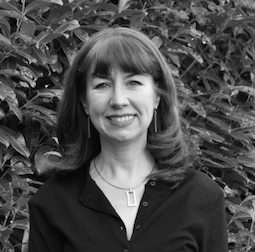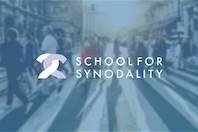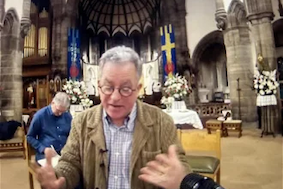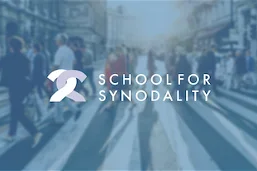A truly 'catholic' conversation - Professor Rowlands describes working on Continental Stage Document

Professor Anna Rowlands
During Thursday's press conference for the release of the Synod Document for the Continental Stage, Professor Anna Rowlands outlined the work that went into drawing up the synthesis.
She said: "For those of us involved in the Frascati meeting a month ago it was a privilege to be able to read reports, not only from our own nation or continent, but from every corner of the globe. We have been exposed to a truly 'catholic' - global, inclusive and truth-seeking - conversation. In the reports we found both unique insights into particular contexts and striking shared patterns in the joys and laments voiced across contexts.
The group of experts in Frascati had responsibility for reading, praying with, analysing and discerning these reports, and presenting back to the Church material that would aid reflection during the Continental phase.
A few things should be said clearly about where we are now:
1. The Synod remains in a listening phase. Our task in preparing this Document was to demonstrate that we have listened well and heard those who have spoken. The next phase is a further extension of that listening, now at Continental level.
2. We read every report and individual submission that we received. Carefully and prayerfully. The process of the Frascati group was not merely analytical or conversational but also prayerful, with time taken for liturgy and prayer each day, which shaped our work.
3. This was not a sociological survey analysing reports through established academic data analysis tools. Such work could be undertaken, but it was not the task of this group to do so, nor would that alone have resulted in a Continental Stage Document. The task of the group was a formally ecclesial one, of listening and active discernment and re-presentation.
4. Each report was read by three separate members of the reading group before arriving at Frascati, with care taken to note key insights, questions, recommendations and requests. This work was undertaken in a spirit of discernment, attempting to honour the experience of faith lived by those people who took part in this phase of the process.
5. In group reflection we shared the emerging common themes, questions, and insights present across reports, and noted the themes that seem to have special significance for particular local/national communities.
6. The quotations that punctuate the DCS try to give an idea of the richness of the materials received, letting the voices of the People of God from all parts of the world speak as much as possible on their own terms and find resonance. They are not to be interpreted as endorsing the positions of any particular area of the globe, nor as simply representing geographical variety, although care has been taken to ensure a certain balance in terms of source provenance. The quotes were chosen because they express in a particularly powerful, beautiful or precise way sentiments expressed more generally in many reports. They are intended to aid the Continental Stage in listening deeply to the global Church community: we wanted to provide a document that would help us to listen well to each other across contexts. In this way the citations used honour the listening to the margins Pope Francis has made a priority for this phase of the Synod, as well responding to the clear global patterns emerging from the reports - of which there were many. The citations also work to remind us that the ultimate purpose of this process is not to produce documents but to open horizons of hope for the fulfilment of the Church's mission."
Professor Rowlands then made some comments on working between two languages. She said: "Typically, a document of this kind would be developed in a single language and translated onwards. The Synod has diversified that process, principally in response to the need to carefully re-express what we have listened to. Each language is a cultural universe, with implicit references, idiosyncrasies and so forth. By working in two languages this brings all that is implicit to the fore. From the outset of the Frascati process we worked as a group and as writers in both Italian and English. Of course, this has also proved an intense learning experience too, and we continue to have much to learn about how to create a Synod process guided by the Spirit of the Church at Pentecost."
See also: Voices of Excluded in Synod Document for Continental Stage - www.indcatholicnews.com/news/45785


















